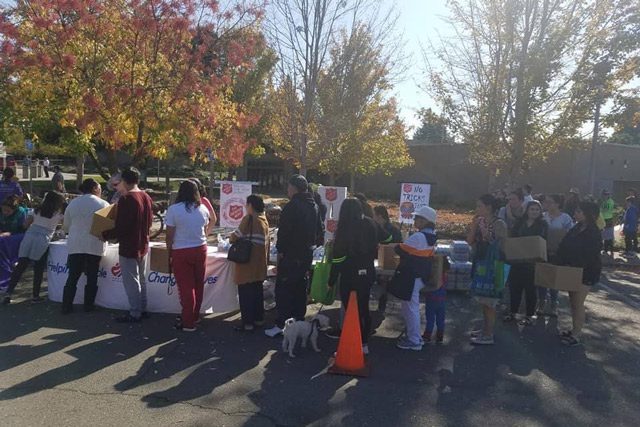A Scripture study from Caring, part one of four.
The book of Colossians was written by the Apostle Paul. His message to the church in Colossae was that they should stick to the message that he brought them and not turn aside to other (false!) versions of the Gospel.
Paul was motivated by a deep love and a kindred connection to the believers there. He writes like a concerned parent for his children who were being lured away to destructive influences. Paul gives them instructions for putting on the way of Jesus like a new set of clothes: there was a better way to live and it was summed up in the life and pattern of Jesus.
In this four-part study series, we will look deeper at living better by following Jesus’ example.
Part 1: Paul’s love for the believers
Colossians begins with kind words from Paul to his friends and fellow believers. He writes to them about how he has heard of their love for other believers. This love in turn was derived from how they had taken ahold of the Gospel message they heard (1:4-5). Their love for others came from God’s own act of love making a difference in their hearts. Paul commends them for this and affirms the power of the Gospel as it was going out into the world around them.
- How might we describe God’s love for us? Do you see it represented by any special descriptions in Scripture? (Example: God’s love is sacrificial.)
- Are there other metaphors in Scripture that teach us about how God loves us?
In the next paragraph, starting in verse 9 of chapter 1, Paul writes to the believers to say that he is praying for them. His prayer in particular is that they would walk worthy of the Lord. Now, Paul probably does not intend by this statement any idea about working for our salvation or trying by our own efforts to be “good enough.” Rather, like he states in Eph. 4:1, he wants us to live up to the ideal, to the pattern of Jesus that we know about from the Gospel itself.
In the next section, Paul continues by explaining more about Jesus and who he truly is. Read Colossians 1:15-21.
In 1:15-17, Paul is focused on Jesus and his preeminence. He was the “firstborn” of all creation and everything was made through him and all things now hold together in him.
In 1:18, Jesus is called the “firstborn” from the dead! The use of “firstborn” in this verse and before does not mean that Jesus was created at a certain point. Jesus is fully God and has always existed. The use describes the cultural significance of being firstborn. Firstborn boys in their time would inherit more of their father’s household. So Paul uses it to talk about Jesus’ ownership of all things. He uses the phrase “firstborn of the dead” to show that Jesus is the first of the resurrection that is still to come. Jesus is the evidence of our hope in a future resurrection because he was first (1 Cor. 15:12-20). Since they have a future with Jesus in his kingdom, Paul’s point is that they should stay true to him with this hope in mind (Col. 1:22-23).
Application
Paul has some application points in mind for his audience that he gets to later in the book, but we can learn from his example even in these early verses, too.
1. Paul’s kind words early on were probably a great encouragement to the believers in Colossae. When we take the time to recognize the growth and development of others in the faith we strengthen and bolster the family of God to stay strong and to be faithful. Is there a way you can encourage someone like this today?
2. All the deep theology of this chapter has a purpose: Paul wanted the believers to be sure of their faith in Jesus and, as we’ll see next week, not to waver in their faith. When you have questions about your faith, do you take the time to try to figure things out? Doubts and questions are not a problem in our walk with Jesus, but let’s also take the time to figure out our faith more clearly and more carefully as well. Let’s be sure of the things we believe.
Application Questions
- Who can you encourage and affirm in the faith today?
- What questions do you still have about the faith and where might you find an answer?
- What habits have you developed to help yourself grow in the faith?
- What practices would you like to develop to continue following Jesus as best as you can?
Sign up for the Do Good Digest, our weekly newsletter, and stay tuned next week for part two.
Do Good:
- Download the full study and find more like it from Caring in the Scripture study library.
- Visit westernusa.salvationarmy.org to find The Salvation Army nearest you.
- Give to support the fight for good in your community.
- Do you have a hard time telling people what you do, or what you’re passionate about and why? Ever stared at a blinking cursor, unsure of what to say or where to start? Or do you avoid writing altogether because you’re “not creative enough”? Take our free email course and find your story today.

















